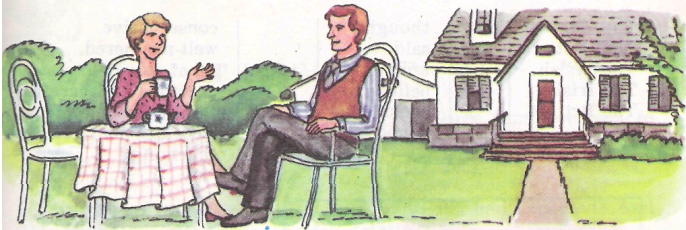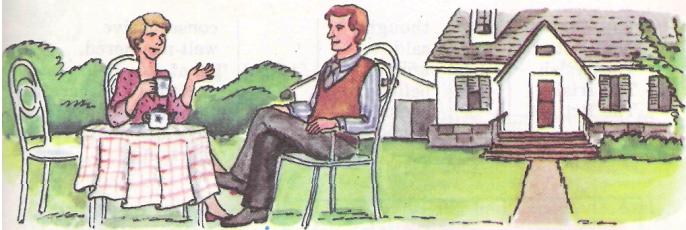Урок "What Are the British Like"
Topic: English-speaking countries. Great Britain.
Subtopic: «What Are the British Like?»
Objectives: - to teach the students to use a new grammar structure …is said…
- to encourage students to use prior knowledge on the topic;
- to improve students` reading and listening skills;
- to practice discussion on the topic;
- to encourage students to give their opinions;
- to develop memory, stimulate logical thinking, skills of analysis;
- to encourage students to respect other nations, to be tolerant
Equipment: pictures, handouts, text for reading.
The Procedure of the Lesson
I. Introduction
Hello, dear friends! I am glad to see you. Today we continue speaking about Great Britain and British people. Look at the blackboard and read the title of the lesson «The British and the Ukrainians: Are We Different or Alike?». Any ideas about what the topic of our discussion is?
(To describe the British character, the Ukrainian character, compare them, find similar and opposite traits of character.)
II. Warming up Activity: describing people
Teacher: Do you remember the words which help you to describe people? Answer the question: What does your name mean? Find the adjectives characterizing yourselves which start with the letters of your name.
N – nice
A – active
T – talented
A – attractive
L – lazy
I – inventive
E – energetic)
Student 1: My name is Natalie. I am nice, active, talented, attractive, lazy, inventive and energetic.
S 2: My name is Denis. I am disciplined, emotional, neat, interesting and sociable.
T: What other words can you use to describe a person? Take cards, read the description of a person and replace it with an adjective.
- He is a person who does everything carefully and sensibly without any risk. – He is prudent.
- He is a person who is against great or sudden changes. – He is conservative.
- He is a person who likes the company of others. – He is sociable.
- He is a person who doesn’t say all he knows or feels. – He is a shy (reserved) person.
- He is a person who doesn’t laugh or make jokes very often. – He is serious.
- He is a person who creates or designs something not existing before. He is inventive.
- He is a person who works a lot and tries to do his best. – He is a hard-working person.
III. Practice.
Reading. “English People as They Are”
Read the text and answer the questions:
- What do foreigners about the British?
- What are English people famous for?
- English people aren`t fond of sports, are they?
- When and where do they have tea?
- When we speak about British nation what are we thinking about?
Correct the sentences:
- A reserved person always tells you everything about himself.
- Some believe the English eat pasta for breakfast and read comics every day.
- Most British people jump a queue when they are waiting for a bus or waiting to be served in a shop.
- English people show great love for insects.
- Many continentals think life is a game; the English think football is a game.
- They like to drink tea with lemon.
Foreigners have many ideas about what the English like. For example, some people say the English are always cold and reserved, this means that they don't talk much to strangers, and don't show much emotion. A reserved person never tells you anything about himself. But the people of the North and West of Britain are much less reserved than those of the South and East. Some believe the English eat porridge for breakfast and read The Times every day.
English people are famous for their habit of politeness. It is considered polite to give up one's seat to a woman who is standing, to open a door for her, carry things for her, and so on. Most British people expect the person in front of them to hold the door open for them. People think you are rude, if you don't do this. Most British people queue when they are waiting for a bus or waiting to be served in a shop. But during the rush hour, when a bus or train arrives, people often push forward to make sure they get on. This is called jumping the queue.
British people keep their old traditions and are very proud of them. They are famous for their sense of humour. English people show great love for animals. And, of course, English people are fond of sports. Many continentals think life is a game; the English think cricket is a game. To many Englishmen cricket is both a game and a standard of behaviour. When they consider something unfair, they say «That isn't cricket».
The traditional love of English people for tea is well known. They like to drink tea with milk. They have their five-o'clock tea not only at home or in offices, but also in tea-rooms and tea-shops, which can be found in every town.
A nation is born from its land, its history, its art, its traditions and its institutions. These things work together to make people what they are. But above all, a nation is made up of people, and although there are things they all share, all of those people are different. We can say there is still a «British nation» and one of the most characteristic features of Englishmen is their traditions, which they respect, and which they have kept for centuries.
Grammar Practice. ( is said (considered, thought, believed, known, etc) to…
T: We have already been learning what to say if you are not sure you are right or not. Let’s revise this piece of grammar material. What verbs do we need to make up such sentences?
Ss: think, believe, know, suppose, say, consider…
T: Translate some sentences from English into Ukrainian:
He is known to be boastful.
The English are said to like fish and chips.
The Welsh are considered to be emotional.
They are supposed to be prudent.
Americans are thought to be self-confident.
T: The next task for you is to transform the following sentences using the construction …is said (considered, thought, believed, known, etc) to…
- People say that the English like animals very much. (The English are said to like animals very much.)
- We know that English people have fireplaces in their houses. (English are known to have fireplaces in their houses).
- Some people consider that the Japanese are inventive and hard-working. (The Japanese are considered to be inventive and hard-working).
- They say that the Italian people are very emotional. (The Italian people are said to be very emotional).
- People know that most English like to live in houses rather than in flats. (Most English are known to like living in houses rather than in flats).
IV. Activity 3. Now we’ll describe the British character with the help of this picture . What can this picture tell us about the British?
S 1: The British like living in a cottage.
S 2: The British like living in a countryside.
S 3: They are tea drinkers.
S4: The British are careful and neat.
V. T: Let’s decide what traits of character are typical for the British. Answer the question: What do you think about the British?
S 1: The British are considered to be prudent.
S 2, 3: …etc.
T: Look at the photo of this person . What can you say about her? Personally, I think she is respectable. And what do you think?
S 1: I think she is well-mannered
S 2: I think she is clever.
S 3: I think she is hospitable, etc.
T: Let’s decide what traits of character are typical for the Ukrainians. Answer the question: What are the Ukrainians like?
S 1: The Ukrainians are believed to be kind-hearted.
S 2, 3 …etc.
T: Look at the photo of this Ukrainian man. What is he like? As for me, I think he is hard-working. And what do you think?
S 1: I think he is polite.
S 2: I think he is intelligent …etc.
VI. Activity 4.
T: Now we’ll compare the British and the Ukrainian character. What is different in their characteristics? Do these nations differ much?
S 1: The British are said to be reserved and the Ukrainian are considered to be open-hearted.
S 2: The British are considered to be conservative and the Russians are believed to be inventive… etc.
T: What is similar in the characteristics of the British and the Ukrainian people? Do they have much in common?
S 1: I think they are great tea drinkers.
S 2: I think they are country people.
S 3: I think they have a good sense of humour.
S 4: I think they are kind to foreigners.
S 5: I think they are kind-hearted and generous.
S 6: I think we both like old traditions and follow them.
T: Do you think we differ very much?
Ss: We have much more in common. Both the British and the Ukrainian are …. . They have… They like …
VII. Activity 5.
T: I think we have one more thing that unites our two nations: we want to have peaceful life. What should people be to make our life peaceful? Give your ideas.
Ss: People should be kind-hearted and generous. They should be polite and hospitable,…etc.
T: I should add that there is one more feature of character which can unites all the people in the world – it is tolerance. If people are tolerant they can understand each other better and there will be no wars on our planet.
VIII. Summing up. What was the title of our lesson? Did we try to answer this question? You’ve worked very well today. Thank you for the lesson.
 Look at the picture. What can you say about the British?
Look at the picture. What can you say about the British?



про публікацію авторської розробки
Додати розробку
